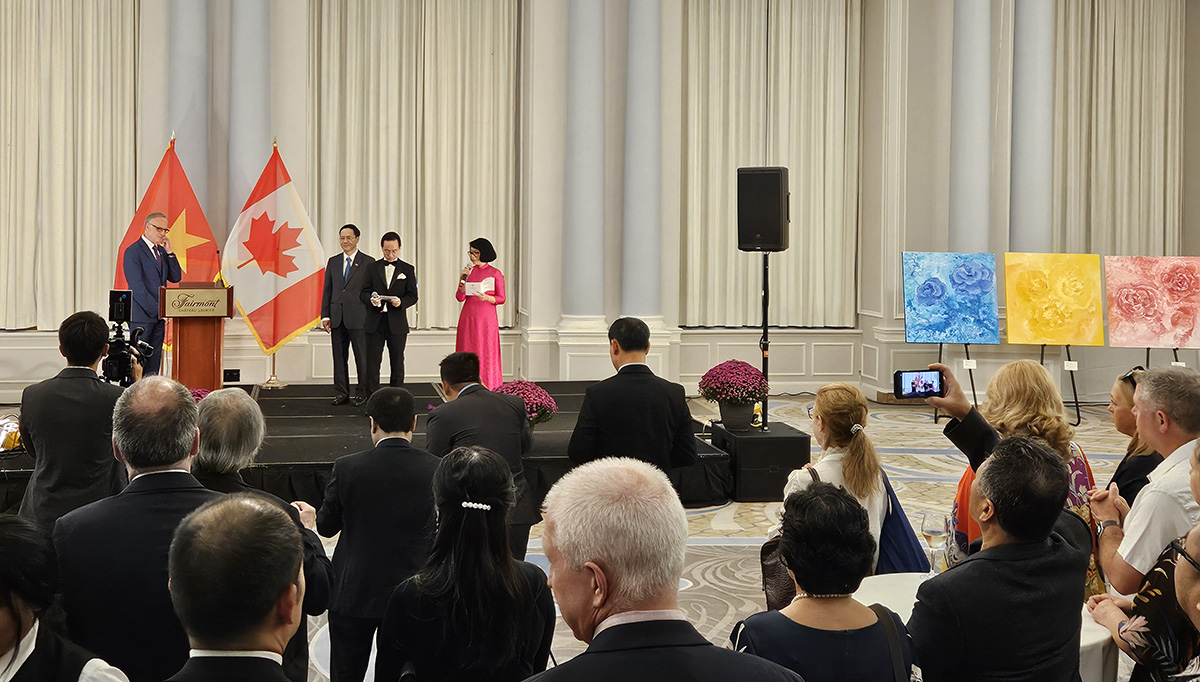
First Annual Indie Filmmaker Showcase does Ottawa Proud
One month after the Ottawa International Film Festival, Ottawa’s film community congregated once more. This time, there were no contests or judges, only fellow filmmakers, casts and crews, supporting each other in their cinematic endeavors. This was at the first annual Indie Filmmaker Showcase, an event that took place at the Mayfair Theater last Thursday.
Instead of competing with big guns like TIFF, Showcase is not interested in being considered in the same category. Rather, it hopes to become the Canadian version of Sundance, “where independent artists showcase more arty films, short films, documentaries, that kind of thing,” explains Jith Paul, the event’s mastermind and man behind Treepot Media. “I wanted to show that Ottawa has so much going on right beneath the surface. There’s an underground culture of short films.”
Paul’s ultimate hope is that Showcase continues and expands into a multi-annual event that focuses on the craft rather than the business side of the industry. “The reason I wanted to stay away from it being a competition,” he explains, “is that it gets you bogged down in the details. You have to […] justify what gets in and what gets left out. This was more about filmmakers showing their films.”
Showcase is unique in that it was created with the idea of showing Ottawa-based artists’ works. In some cases, films were sitting in the proverbial film cellar, not seeing the light of day. As Paul explains, “it came about because I have a bunch of friends who’ve all worked on short films, and we were looking for people to see them. And we figured, why not?”

“Why not?” was the overwhelming sentiment floating around the group of creative cinema comrades, at Showcase’s after party at The Barley Mow on Bank Street. “You saw the proof tonight. Ottawa is just blooming with talent,” summarized JF Dufault, the writer and director of one of the films premieres, Fishing – a short about a homeless man obsessed with fishing, until he finally catches a pleasant surprise.
“All it takes is someone to have the idea and then go for it and do it,” Craig Allen Conoley of Partus Films told Ottawa Life, praising Paul for starting the process. Conoley was in the industry in Montreal and internationally, until he decided to come back to work with hometown peers, with a specific reason in mind. “Ottawa’s so great,” he says, “because you can become a dominant force I think here by putting in a lot of hard work, by being honest with people.”
While Canada’s capital now has the Ottawa International Film Festival and the acclaimed Ottawa International Animation Festival – two admitted success stories on an international scale – Showcase grew out of a sense that the community’s talent needs more venues for showcasing their own work. So Paul and other filmmakers rented the Mayfair for the night, and invited Ottawa filmmakers to put up content, which ranged from trailers of series and films, to music videos, to short films, both scripted and documentary.
Two of the most memorable films were ones that touched an emotional nerve, but showed an equal amount of quality of idea and visual conception. Poetry in Motion, a film by the Conoley, had its premiere at this year’s OIFF. It’s a short documentary, which also plays like music video, about Ottawa award-winning spoken word poet Brandon Wint. As the film opens, there is some confusion as to what we, as the audience, are seeing. In effect, it’s an inverted gaze, as Wint wears a head cam that captures people watching him as he walks down busy streets.
“It’s something he experiences, but we wanted an audience to experience it also,” explains Conoley. No words – just street noise, his telling footsteps and a superimposed acoustic guitar tune. The effect is eerie. But we still don’t fully understand. Why the awkward stares, the uncomfortable glances and sudden eye turns? The camera turns on Wint, a close-up of his face as he walks into a bar and speaks into a microphone. Words come out as Wint describes his experiences in spoken word. We finally understand as he enunciates what he has known his whole life, but what we only look at in discomfort: cerebral palsy. The camera turns on his feet, and the words reverberate in his steps, “different” than ours. The film was haunting…

Mélodie, Mylène Paquin and Karim Ayari’s short, is another film of note. This time, no words were needed – this short packed a powerful visual punch. Mélodie is a film about a homeless girl who stumbles upon special sunglasses that are seeming portals to a better world, a utopia of sorts. Sunlight and happy people – dressed in all kinds of fairy tale concoctions – parallel the real world of darkness and negativity. The trick is in what she sees verses what others see. Is it the glasses, or her outlook on life? The film ends with the lingering question.
Other showings were also memorable. They included Paul’s own collection of Ottawa street shots in Ottawa at Night, Luca Fiore’s easy-on-the-eyes Making a Fried Egg, Karim Ayari’s comedy short The Interview, Kevin Friel’s Tim Horton’s spoof/music video 1 out of 6, Derek Price’s Balance, and Chris Chitaroni’s Laughter and Profile of a Killer.
We also saw trailers for “Call of the City”, web series “Chum Per Hour”, and documentary feature “How Can a Boy”. Music videos for local musicians Tara Holloway and My Favourite Tragedy were also screened.
As the event wrapped up, and the time for celebrating hard work commenced, conversations led to the budding of creative collaborations, which was another one of Paul’s goals for the evening. Digi60, “Ottawa’s filmmaker’s festival”, had just wrapped up one of its information sessions that evening, purposefully done to coincide with the Indie Showcase.

Many of the filmmakers involved in Showcase were previous entrants of Digi60, so the announcement had impact on filmmakers’ plans. Each year, Digi60 creates a “catch” for filmmakers – a theme or parameter they must incorporate into their films.
The “catch” for both the documentary and scripted streams were fully revealed by end of last week. Both entail a “passion” of sorts. The documentary films have to include a “passion” – however filmmakers choose to understand this – and the scripted stream added to that theme, combining “passion” with “kiss”. On the heels of watching their finished products, this festival gave interested filmmakers an immediate challenge. Anyone can enter – for a small fee and the limit of 60 days to make the film.
Showcase had no such catch. Its mandate was clear: show content produced by Ottawa filmmakers. But it didn’t hide the fact that it was also there as a building-block for professionals in the Ottawa film business, including promoting peer events like Digi60. It was obvious that there was no preferential treatment at Showcase. You just had to be in Ottawa’s filmmaker community, and make it known that you would help in each other’s projects. It was pure democratic filmmaking in the making. One can only hope that the democracy continues.
To find out more about the Indie Filmmaker Showcase go to http://treepotmedia.com/
To find out more about Digi60 2011, and how to enter, go to www.digi60.org









